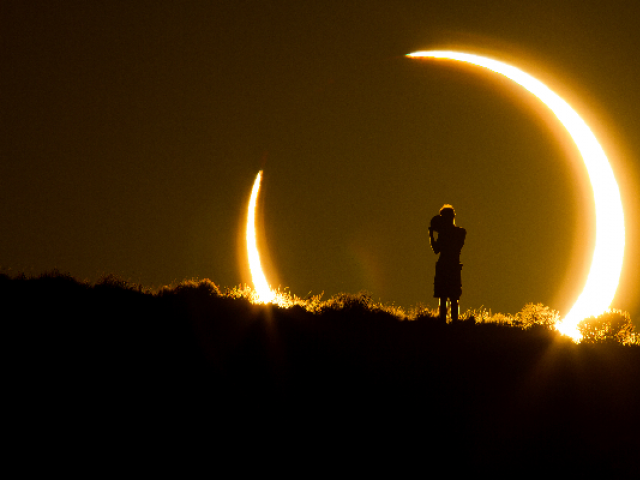Pakistanis are in for a treat on Thursday—an annular solar eclipse after a gap of 20 years.
On December 26 the country will be treated to a "ring of fire" solar eclipse to end the year and the decade. According to the Pakistan Meteorological Department, the country witnessed the last annular in 1999 during which the Sun was fully covered by the Moon.
The expected annular eclipse will start at 7:30 am on Thursday and the Sun will be partly covered by 8:30 am. The total eclipse will be observed approximately at 10:08, when 90% sun will hide behind moon. The eclipse would end just before noon but the day could remain partially dark till 1 pm.
Chief Meteorologist Sardar Sarfaraz said that the complete solar eclipse would be witnessed in southern parts of Pakistan, especially in the coastal areas like Karachi and Gwadar, during which the day would turn into the night for some time.
NASA's Mars 2020 rover completes first driving test
This annular solar eclipse will also be witnessed in Eastern Europe, north-western Australia, eastern Africa, Pacific Ocean and Indian Ocean. In all, 2019 witnessed five lunar and solar eclipses, of which only one solar and one lunar were seen in Pakistan.
Unlike the great 2017 solar eclipse which was visible across the US, this one will leave a little ring of Sun when hitting the point of totality, a type of eclipse that is called an annular eclipse. The Moon is currently closer to its apogee – farther from Earth – which makes it appear 3% smaller than the Sun when viewed from Earth.
Solar eclipses always occur within roughly two weeks of a lunar eclipse, because of the way the eclipse season works. The current season's lunar eclipse is happening on January 10, but unfortunately it's a penumbral lunar eclipse, which is hard to distinguish from a usual full Moon.


COMMENTS
Comments are moderated and generally will be posted if they are on-topic and not abusive.
For more information, please see our Comments FAQ